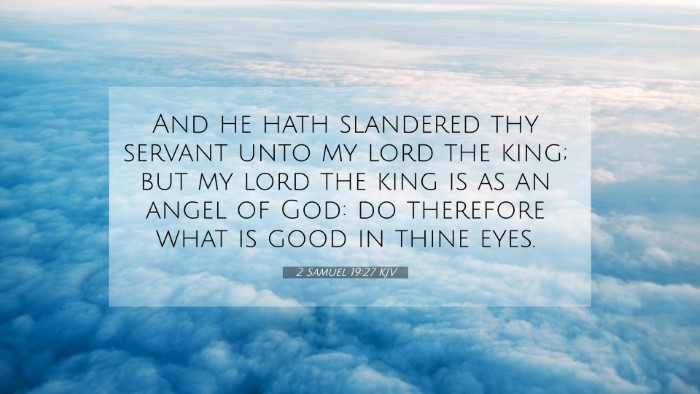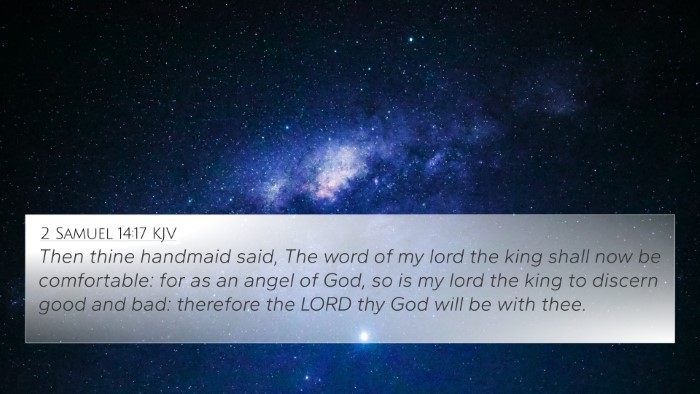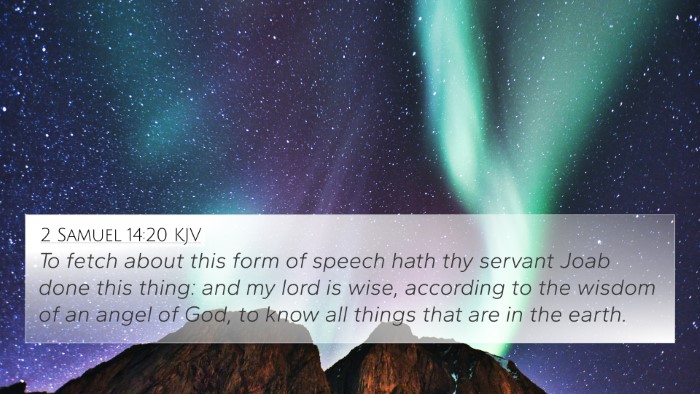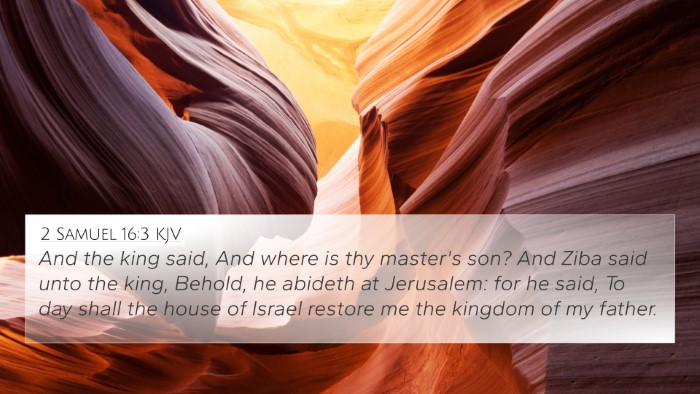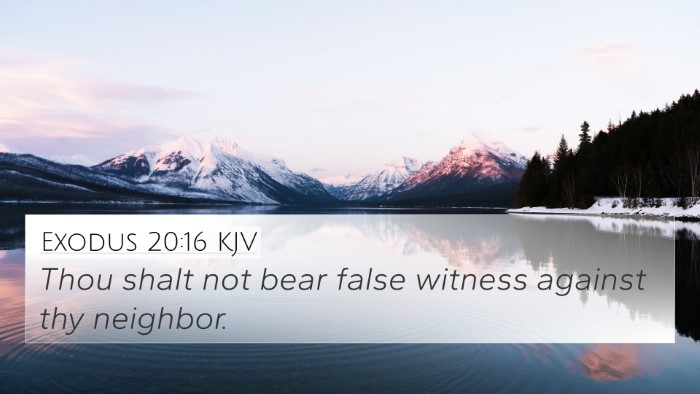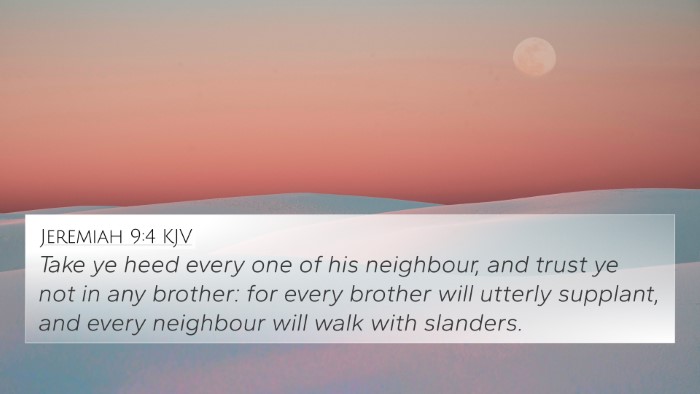Understanding 2 Samuel 19:27
2 Samuel 19:27 states:
"And he said, ‘My lord the king, my servant deceived me, for your servant said, “I will saddle my donkey, that I may ride on it and go with the king.” And when your servant had gone from your lord the king, he then lied about me.’”
This verse occurs in the context of David's return to Jerusalem after Absalom's rebellion, highlighting themes of loyalty, deception, and communication between servants and their masters.
Summary of the Verse's Meaning
The essence of this verse revolves around Mephibosheth and his unexpected betrayal. Mephibosheth, who was disabled, is speaking about Ziba, his servant. Ziba misrepresented the actions of Mephibosheth to David. Alongside a summary interpretation, we will analyze the implications and connections found in this scripture.
Insights from Public Domain Commentaries
Matthew Henry's Commentary
Matthew Henry emphasizes the conflict between loyalty and deceit in this verse. He points out Ziba's cunning nature and how he took advantage of the situation, highlighting a broader principle regarding human motives. The commentary elaborates on how David had to navigate these conflicting accounts between his servant and Mephibosheth, which illustrates the complexities of trust and the pitfalls of miscommunication.
Albert Barnes' Notes on the Bible
Albert Barnes expands on the roles of both Ziba and Mephibosheth. He indicates that Ziba's actions were self-serving, seeking to benefit from the king's favor at the expense of his master. Barnes puts emphasis on the need for discernment in leadership and how David’s choices reflect a king’s vulnerability to misinformation.
Adam Clarke's Commentary
Adam Clarke focuses on the dramatic irony of the situation; Mephibosheth’s claim of deceit anchors the turbulent relationships between David and those who served him. Clarke also highlights the theme of justice and retribution that runs throughout this section of Scripture, questioning Ziba’s integrity as a servant and hinting at deeper moral questions surrounding loyalty and betrayal.
Thematic Analysis and Cross-references
This verse not only serves as a narrative in the life of David but also illustrates major biblical themes such as:
- Deception and Truth: The dynamics of truth-telling within relationships.
- Authority and Accountability: The king's reliance on his servants and the repercussions of unreliable testimony.
- Loyalty vs. Betrayal: Highlights the fragile nature of trust in human relationships.
Related Bible Cross References
To deepen our understanding of 2 Samuel 19:27, we can identify several pertinent cross-references that resonate with these themes:
- 2 Samuel 16:1-4 - The firsthand account of Ziba's actions towards David.
- 2 Samuel 9:1-10 - The background of Mephibosheth’s loyalty and David’s kindness towards him.
- Psalm 41:9 - A reflection on betrayal by trusted friends.
- Proverbs 18:17 - The importance of hearing both sides of a story before making a judgment.
- Luke 16:10 - Faithfulness in little things correlates to trustworthiness in greater ones.
- 1 Samuel 15:30 - To illustrate the consequences of deception and failure to acknowledge one’s faults.
- Matthew 24:24 - A warning about false testimony and deception among followers.
Connecting Themes Across Scriptures
By examining biblical connections, we see how the themes of this verse recur throughout Scripture:
- Honesty in Relationships: A consistent theme across Proverbs (Proverbs 12:22) and the Gospels (John 8:32).
- The Role of Servants: Paralleled in New Testament teachings (Luke 16:13).
- Justice and Retribution: Illustrated in both Old Testament laws and New Testament concepts of accountability (Romans 14:12).
Conclusion and Reflection
2 Samuel 19:27 serves as a profound reminder of the complexities of human relationships, trust, and the need for discernment. The narrative of Mephibosheth and Ziba offers rich lessons on the importance of ensuring accurate testimonies before forming decisions.
In summary, understanding this verse requires a multifaceted approach, considering its historical context, thematic elements, and the interconnectedness of biblical texts.
Further Study Resources
For those delving deeper into cross-referencing Biblical texts, consider the following tools:
- Bible concordance
- Cross-reference Bible study guides
- Comprehensive Bible cross-reference materials


